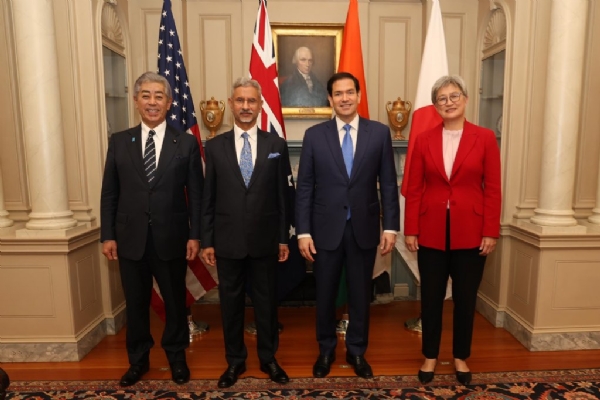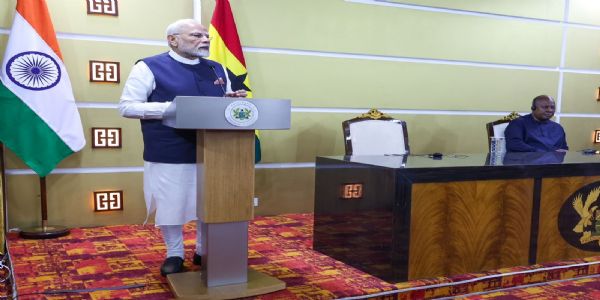
New Delhi, July 2 (HS): The Quad group, comprising India, the United States, Japan, and Australia, reaffirmed its commitment to defending freedom, stability, and the rule of law in the Indo-Pacific. The meeting addressed critical issues such as maritime security, supply chains, technology, and terrorism, highlighting concerns regarding a terrorist attack on April 22 in Pahalgam, with a call for justice against the perpetrators. The Quad condemned terrorism, particularly cross-border terrorism, and reiterated collaboration against it. They also emphasized the need for a ceasefire in the Myanmar crisis, supporting ASEAN’s five-point consensus and announcing $30 million in earthquake relief for Myanmar.
The joint statement issued after the meeting of the Quad foreign ministers held in Washington, D.C., stated, “We call for the immediate justice of the perpetrators, organizers, and financiers of this heinous act (Pahalgam attack) and urge all UN member states to actively cooperate with relevant authorities in this regard, in accordance with their obligations under international law and relevant UNSCR.”
Attendees included External Affairs Minister S. Jaishankar, U.S. Secretary of State Marco Rubio, Japan’s Takeshi Iwaya, and Australia’s Penny Wong. The Quad expressed serious concerns over the East and South China Sea, citing threats to regional peace from actions altering the status quo. They stressed the importance of peaceful maritime dispute resolution and freedom of navigation per international law.
“We express our serious concerns regarding dangerous and provocative actions, including interference with offshore resource development, the repeated obstruction of the freedoms of navigation and overflight, and the dangerous maneuvers by military aircraft and coast guard and maritime militia vessels, especially the unsafe use of water cannons and ramming or blocking actions in the South China Sea. These actions threaten peace and stability in the region,” reads the joint statement
A new agenda emerged, focusing on maritime and international security, economic prosperity, innovation, technology, and humanitarian efforts, alongside strengthening ties with regional organizations like ASEAN. The meeting also addressed North Korea's missile and nuclear activities while raising issues of cybercrime and illicit financing, calling for adherence to UN Security Council resolutions. New initiatives, including the Quad Critical Minerals Initiative and maritime cooperation, were introduced, emphasizing the Quad's role in promoting stability in the Indo-Pacific.
Hindusthan Samachar / Jun Sarkar







